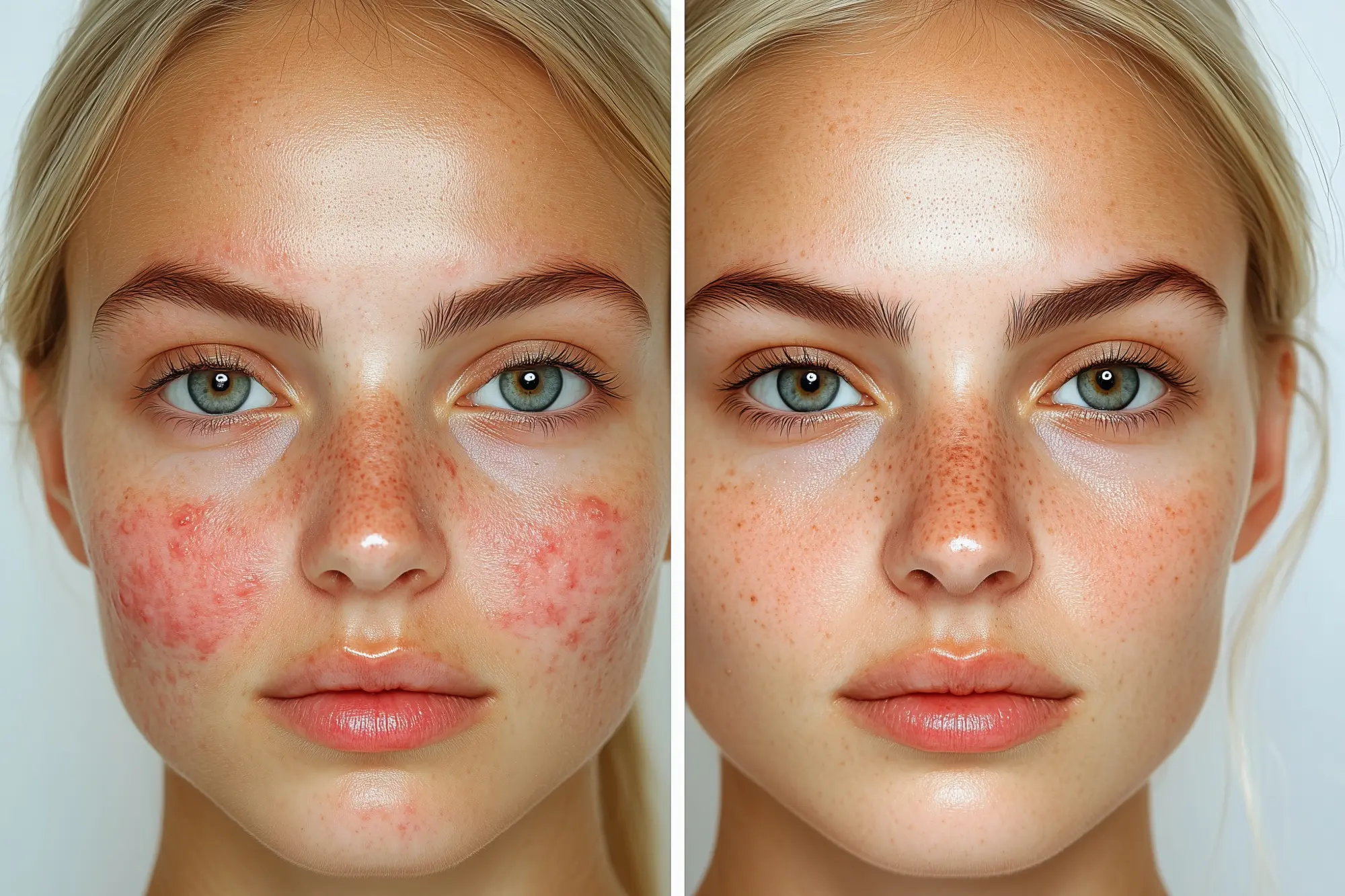
Rosacea Treatment
- Home
- Rosacea Treatment
What Is Rosacea?
Rosacea isn't just blushing that overstays its welcome. It's a chronic skin condition that causes visible redness, inflammation, and sensitivity—often at the center of the face. While it typically starts across the nose and cheeks, it can extend to the forehead, chin, and even the eyes.
But rosacea is more than just facial redness. It presents in different forms, including:
Erythematotelangiectatic Rosacea
Persistent redness with visible blood vessels.
Papulopustular Rosacea
Redness with swelling and acne-like breakouts.
Phymatous Rosacea
Thickened skin and uneven texture, often on the nose.
Ocular Rosacea
Redness, dryness, and irritation in and around the eyes—sometimes before skin symptoms appear.
What Does Rosacea Feel Like?
Rosacea can make your skin feel unusually warm, irritated, or tight. Some days, it's mild flushing. Other days, it feels like a flareup that no makeup can cover. The skin might sting, itch, or develop small bumps that look like acne.
Broken blood vessels (commonly known as spider veins) and dry, rough patches are also common. If the redness sticks around or gets worse over time, it may be more than sensitive skin—it might be rosacea.
What Causes Rosacea?
Rosacea has no single cause, but research points to a combination of genetic and environmental factors.
It's more likely to appear in people who:
- Are between 30 and 50 years old
- Have fair skin and northern European ancestry
- Have a personal or family history of acne or sensitive skin
Other contributing factors may include an overactive immune response, changes in the skin's microbiome, and reactivity to certain environmental triggers.
Common triggers include:
- Sun exposure
- Stress
- Hot beverages
- Alcohol
- Spicy foods
- Temperature extremes
- Skin care or cosmetic products
Each person's triggers are different. Identifying and avoiding yours can make a major difference in controlling symptoms.
How Is Rosacea Treated?
Rosacea can't be cured, but it can be managed—and in many cases, dramatically improved.
We create a tailored treatment plan based on your specific symptoms, which may include:
- Topical medications to reduce redness and inflammation
- Oral antibiotics to treat inflammatory breakouts
- Laser treatment to minimize visible blood vessels and redness
- Customized skincare recommendations for barrier support and daily calm
We also help you identify your unique triggers and build a plan to reduce flareups and prevent symptom cycles from recurring.
Long-Term Management
Rosacea often requires long-term care, but it doesn't have to dominate your life.
One of the most important habits for rosacea-prone skin is daily sun protection. We'll recommend broad-spectrum sunscreens (SPF 30 or higher) that won't irritate your skin or worsen inflammation.
With consistent care and a few key lifestyle adjustments, most patients see noticeable improvement—and more control over their skin.
Schedule a Consultation
Rosacea can be frustrating, unpredictable, and hard to manage on your own. At Biltmore Dermatology, our certified dermatology provider offers personalized care, targeted treatment plans, and real strategies to calm flareups and protect your skin long-term.
Contact us to schedule your visit at our Terre Haute or Vincennes office — or simply walk in today. Let us help you take control of your rosacea with care that lasts beyond the first visit.